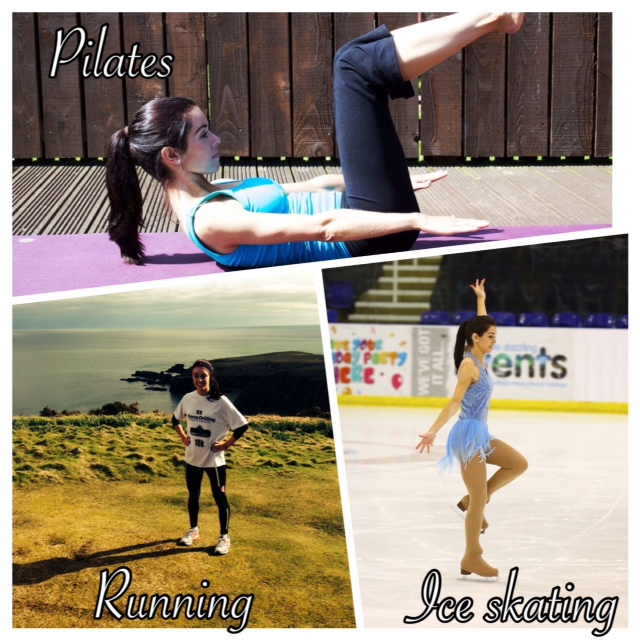Cross-training! Why is it so important?
Cross-training is essentially training in different sports/activities other than your main one. It is so easy to get carried away with wanting to get better at your main sport that it is all you do, every day, every week. But the benefits of cross-training are tremendous. After spending this weekend at the British Adult Ice Skating Championships, where everyone is so fully focused on ice skating, and ice skating only, it brought it to my attention again that having a well balanced training programme is the way to succeed, regardless of your sport.
The top reasons to cross-train:
1) Injury prevention. The most common reason for injury is overuse, in any sport. Constantly repeating the same movements will eventually overload the joints and muscles giving muscle imbalance, muscle tears and in some cases eventually cartilage injury. Most of these problems can be avoided if you give the body a rest once or twice a week and do an alternative method of training e.g. if you run regularly, do a non-impact activity such as cycling; if all you do is cardio sports, do a weight training session to maintain isolated strength in your muscles. Having an all-round conditioning plan will not only enhance your performance, it will also prevent time off due to injury.
2) Rehabilitation. When an injury does occur, cross-training allows you to still remain active and keep a certain level of fitness. If you only do one activity and your injury prevents you participating, your fitness will very soon diminish. As will motivation and mental focus. Having a varied schedule means you would just focus more so on the other options until rehabilitation allows you to return to normal. Returning then is also not such a shock to the body as it has maintained fitness and focus.
3) Improve fitness. By cross-training you can afford to train more often or at harder intensities, because the body is still getting to recover from your usual workout. It is getting an active recovery. This way you can still build speed, intensity and power but without fatiguing at the usual sport. Ultimately this could lead to a more efficient performance in your primary sport because the body has been challenged in different ways and will get stronger as a result. No one sport will condition the body in every way that it requires and therefore cross-training allows you to incorporate other aspects e.g. cardiovascular, core, strength, power and flexibility.
4) Enhance motivation. Repeating the same training day in day out will eventually become tedious, both mentally and physically. If you have a varied training schedule you will always be stimulated, and therefore will always gain from it. It is easy to get stuck in a rut and follow the same plan but variety really is the key to maintaining motivation and performing better. If you are consistently more motivated you are much more likely to excel when you train.
5) Transition phase. Every sport will have a natural season or calendar. For example, some runners run less during winter. If you want to constantly stay fit and improve on your performances, then you need to follow a transition phase- where you give your body and mind a rest from the activity and prepare for the next season. This prevents you burning out, loosing motivation and just dragging on month after month without gaining any further progress. It is a good way to set targets too, train up to a certain point and then you know you have a taper period. This encourages harder training beforehand. You can then enjoy your transition phase, try new activities and return fresh for the new period of training.

So go plan your weekly training plan now and try to make it balanced! Try to include one cardio element, one strength training session and one that involves core and flexibility. At the moment my training plan is focused on running, ice skating and pilates– giving me this balance and keeping things centered!



